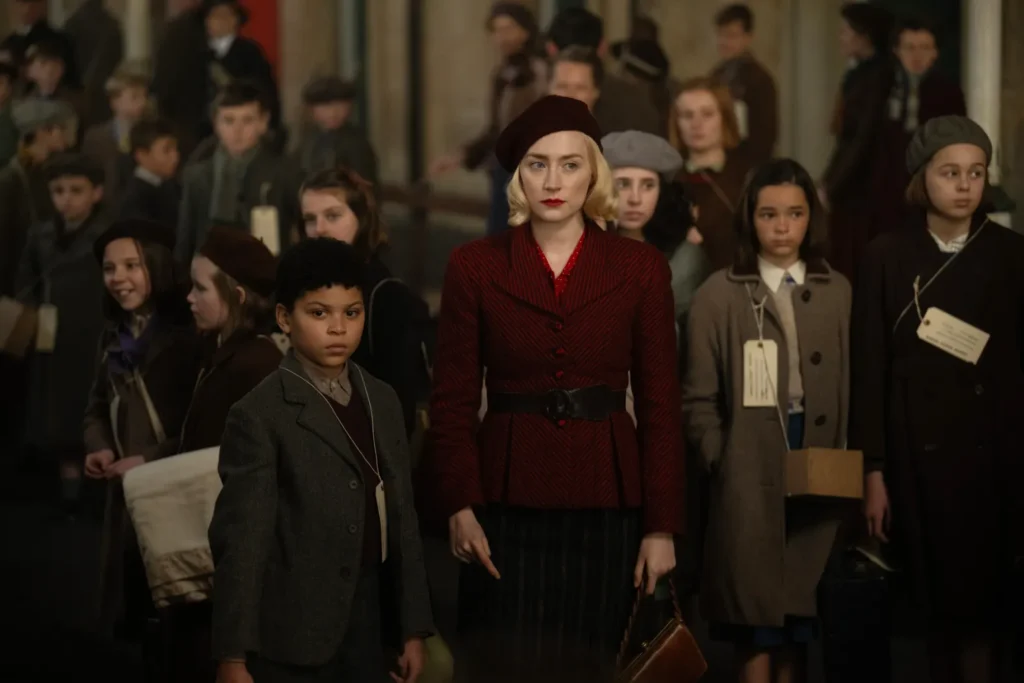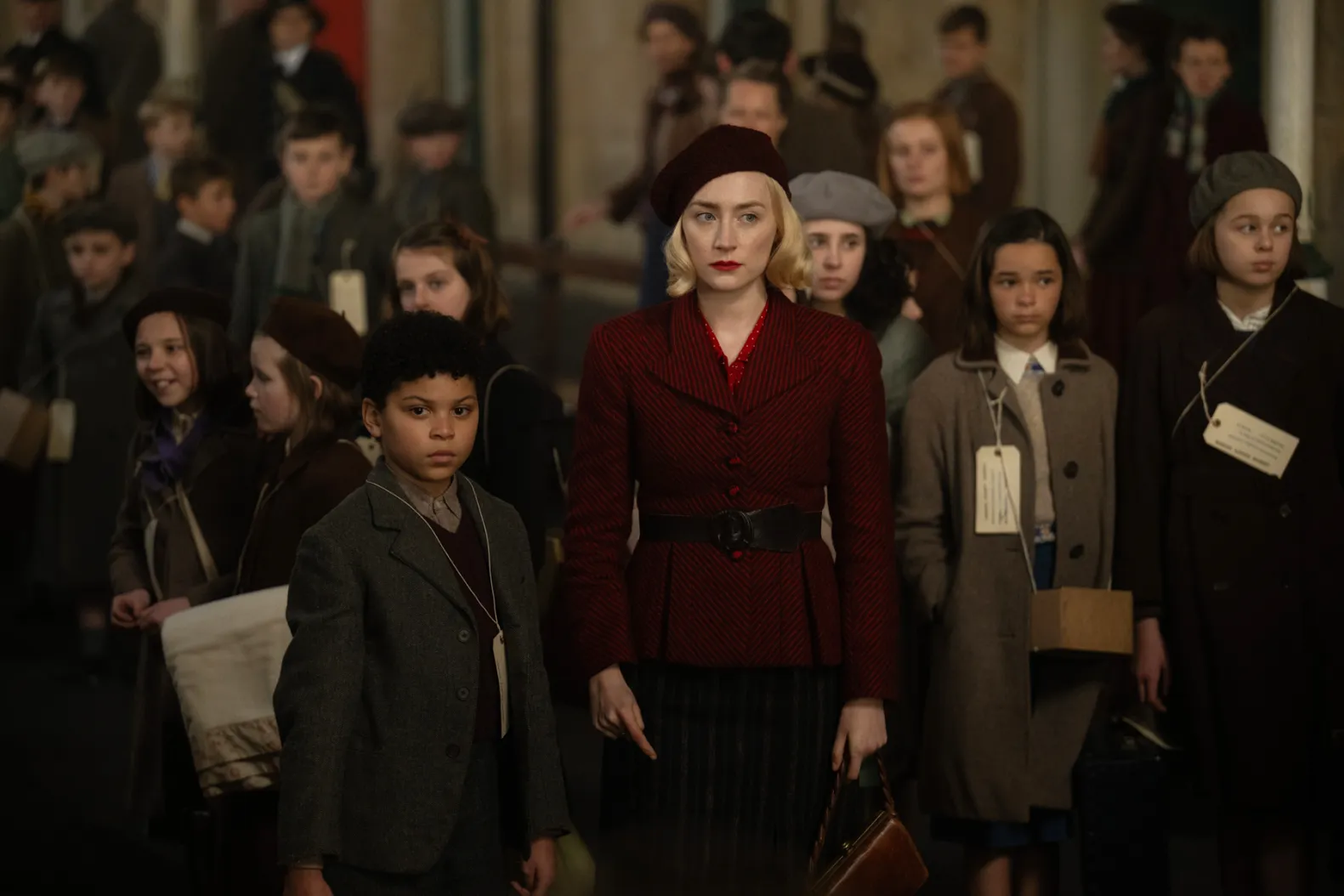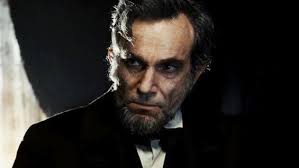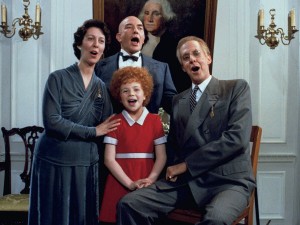Blitz
Posted on November 7, 2024 at 12:06 pm
B +| Lowest Recommended Age: | High School |
| MPAA Rating: | Rated PG-13 for thematic elements including some racism, violence, some strong language, brief sexuality and smoking |
| Profanity: | Some strong and racist language |
| Alcohol/ Drugs: | Drinking and smoking |
| Violence/ Scariness: | Extended wartime violence with bombing, characters injured and killed |
| Diversity Issues: | A theme of the movie |
| Date Released to Theaters: | November 8, 2024 |

“Blitz” is set in the chaotic wartime bombing of London, when the Nazis attacked the city from the sky for more than 8 months, and many families sent their children to stay with strangers in the countryside to keep them safe. Writer/director Steve McQueen immerses us in the terrifying assault, the bombs seeming pointed directly at us, no way of knowing where they will land or what kind of destruction they will cause.
Fire and rubble are everywhere, and the water pressure in the firehose is so powerful that it jumps out of the hands of the people trying to help. The overwhelming attacks are met with determination and resilience. But within it is the recognition that they are terrified. When the security guards try to keep people fleeing the bombs out of the underground Tube stations, people push through. A live radio broadcast intended to boost morale features musical performances by weapons manufacturing workers, the British version of Rosie the Riveter. It is interrupted with protests about inadequate safety. Recognizing that nowhere is safe, London parents prepare to send their children away. One of those children is George (Elliot Heffernan), the nine-year-old bi-racial son of Rita (Saoirse Ronan), who works in the munitions factory.
They live with Rita’s father, Gerald (Paul Weller) and they are a close and devoted family. Gerald is a piano player in a bar in the evening. Rita has a lovely singing voice and is featured in that radio broadcast. Music plays a key role throughout the film, from two different nightclub scenes featuring Black performers to people camping out in bomb shelters singing songs to keep their spirits up.
Rita brings George to the train, loaded with children, each tagged like a piece of luggage. There is very little supervision and no kindness or sympathy. George, frightened and angry, barks “I hate you!” at Rita, who is already devastated at sending him away. As the train chugs into the countryside, some boys on the train try to bully George. He feels so much regret about the way he left his mother that he decides to go back home. He jumps from the train with no idea of where he is or how far he is from London. His journey is a Dickensian odyssey. Heffernan is the heart of the film, and he gives a thoughtful, soulful performance.
Nine is an age right at the cusp between the magical thinking of a child and the beginning of a deepening understanding of the world of adults. McQueen, so good at conveying the chaos of the Blitz, is even better at conveying that liminal moment. Through the havoc, George seems to travel in a protective aura of innocence. He is smart and brave, but we see through his eyes and understand the dire risks George is facing far better than he does.
George meets a lot of people along the way, including three young brothers who refused to be placed in different homes, Ife, a kind-hearted African-born security officer (Benjamin Clémentine), and a cruel group of scavengers who steal from dead bodies and destroyed buildings. They capture George because he is small enough and expendable enough to send into places they cannot reach. The lost boy themes echo Great Expectations and David Copperfield, giving George’s story a connection to heroic myth. Along the way, we get flashbacks showing us the racism experienced by George and his now-absent father. The bombs keep falling.
There is a optimism in the film that seems inaccurate for the era, including a Capra-esque speech chastising those in a shelter who do not want to interact with people of color and a very idealized character in Ife. Even within the context of George’s naive perspective and the “carry on” imperatives of the era, it is out of place, the present speaking through the past. Maybe we still need it to hear it.
Parents should know that this movie is a wartime story with intensive bombing attacks, characters are injured and killed and there are graphic and disturbing images. It also includes cruel and criminal behavior and racism. A child is in danger through much of the story. People having sex are overheard by others, including a child.
Family discussion: How did Ife change George’s mind about himself? What did the scene in the subway with characters from earlier in the film mean? What does music mean to the characters?
If you like this, try: “Hope and Glory” and “Au Revoir, Les Enfants,” other WWII stories from a child’s perspective



